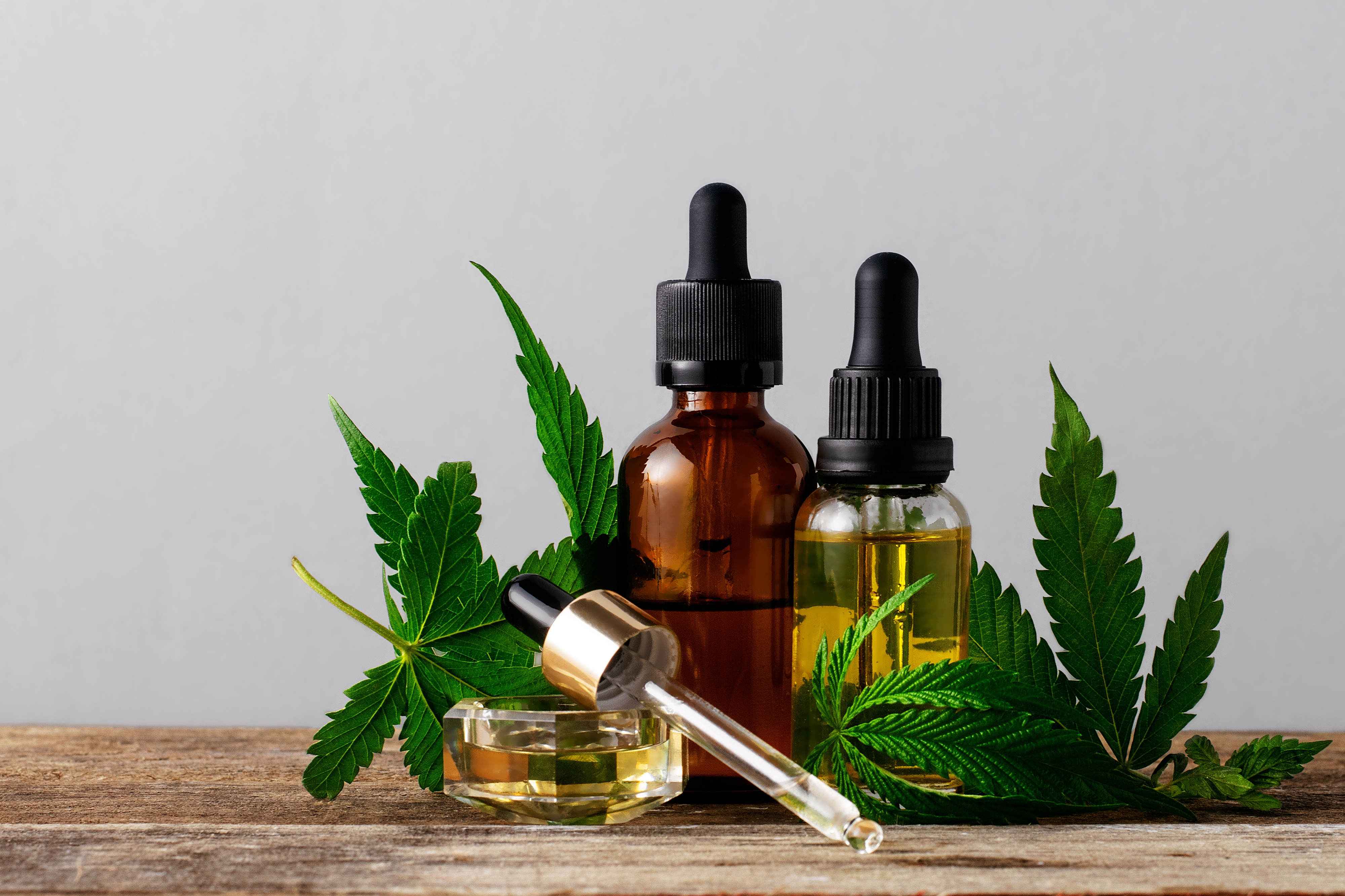How Specific Insurance Policies Affect Dispensary Insurance Cost

The Cost of Insuring Your Dispensary
Now that medical marijauna (or recreational, depending on where you’re at) is legal, operating a cannabis business is super simple, right?
The tension between federal and state laws regarding the legality of marijuana and its subsequent distribution makes insuring your dispensary a bit of a headache at best and a nightmare at worst.
However, if we disregard the fact that your dispensary sells what is federally a Schedule 1 substance, your business is really just a brick-and-mortar retail establishment. As such, it faces the same insurance needs as any other storefront. It has employees it needs to protect, customers the business interacts with, and a property that needs coverage.
Though you may need more specific types of insurance, your dispensary needs the basics first, then some specialized insurance options. For informational purposes, let’s take a look at different types of insurance products and how they help your dispensary.
If you want to work with experts in cannabis-related insurance, our team is always here to help you out. Contact us any time for help, or check out our FAQ on what types of insurance is required for cannabis-related businesses (CRBs) in your state.
Types of Insurance for Marijuana Dispensaries
These types of insurance are tried and true, often required by law, and extremely beneficial to any commercial business, not just your dispensary. As always, please check with your state and local regulatory agencies for up-to-date information about what type of insurance is required in your state.
1. Workers’ Compensation Insurance
Workers’ compensation protects and covers your employees in the event of a work-related injury or accident. General liability insurance won’t cover employees injured or sick in the scope of their employment, so that’s how workers’ compensation insurance covers your dispensary from workers’ comp risks.
Not left up to the grace of business owners, workers’ comp insurance is generally required by the state. Though the nuances of when it’s required (some states don’t require it for very small businesses as laid out by their employee amount) vary state by state, you can bet you have to have it. For instance, all Oklahoma businesses are required to have workers’ compensation, save for very unusual circumstances.
It’s required because it represents a very detrimental cost to any type of business. Slip and falls, falling equipment, and the general risk of bodily injury claims can hobble your dispensary.
This insurance provides coverage to help with costs from:
- Medical expenses
- Rehabilitation and long-term care expenses
- Legal and settlement fees
If you’ve got employees, workers’ compensation insurance should be the first thing on your list of coverage needs.
2. General Liability Insurance
Your dispensary is the same as any other retail establishment — foot traffic attracts patrons who can be clumsy, delivery employees can damage someone’s property, and anyone and everyone can get sued for their troubles.
Still thinking about skipping this one? That may prove troublesome as general liability insurance is usually required in property lease agreements. Luckily, this coverage is an investment to protect your business.
General liability insurance can cover your business for expenses like:
- Bodily injury
- Property damage
- Legal expenses
All these circumstances represent times your dispensary will have to pay out of pocket if you don’t acquire general liability insurance. However, there are limits to general liability insurance coverage.
As your dispensary sells items that are intended for human consumption, adverse effects from the products being sold are not covered under most general liability policies. We’ll detail the specifics of product liability insurance later on.
3. Commercial Property Insurance
Your dispensary contains not only valuable inventory but expensive equipment and technology. Should something happen to your business property or its contents, your dispensary’s future is at stake.
Consider damages from the following and the expensive toll it can take:
- Burglary and theft
- Weather damage
- Fires
- Vandalism
- Temporary closure
Especially due to dispensaries’ reliance on cash and the high value of the product you sell, your dispensary is more prone to burglary and theft. Other types of insurance won’t generally cover these types of damage claims.
Though it can be expensive, commercial property insurance covers a lot more than you think. Consider the value of the following:
- The property itself
- Its equipment and tools
- Inventory
- Furniture and decor
- Personal property on site
The cost of replacing any or all of this, should the worst happen, could threaten your business and determine whether your dispensary can remain open.
Expensive inventory is stored and sold in dispensaries, to say nothing of the usual storefront needs like glass cases and surveillance equipment.
Commercial property insurance gives you coverage to replace these expensive necessities in the event of damaging circumstances.
Additionally, standard commercial property policies can be written to have an inclusion to add replacing cash on your policy.
4. Product Liability Insurance
Product liability insurance covers a business in the event of adverse product reactions, employee mistakes and misrepresentations, or even misunderstood employee recommendations. Though it is a garden variety insurance offering, it’s particularly helpful for dispensaries.
Cannabis-related businesses deal with a lot of newcomers and first-time customers. As such, they have a lot of questions about what they would like, what kind of cannabis product would work best for their needs, and what they should expect from a cannabis product.
Your employees, while well-meaning, can give advice that can cause adverse reactions. They can sell a marijuana product to someone who just wants to take CBD or even recommend a pineapple edible when a customer specifically said they were allergic to the fruit.
All of these instances could seem harmless, but they can represent expensive legal costs should a customer file suit against your dispensary for ill effects.
Even if the fault does not lie with your dispensary (say a processor mislabeled something), your business could be liable by participating in the sale.
Whether your business settles out of court or not, the necessary legal expenses can cripple your business.
Product liability insurance coverage can help with settlement costs, legal expenses, and court fees should your business be threatened.
5. Money and Securities Insurance
While it is possible to have cash included in your property insurance coverage, it could be worthwhile to examine Money and Securities Coverage for your dispensary. This would be explicit coverage of all the cash on hand in the business, which includes a register, safe or on-premises ATM.
Sure, while there is an explosion of state banks out there providing banking services for CRBs, you likely keep a plenty of cash on hand. Make sure you don’t experience a substantial loss of income by protecting one of the most valuable assets a dispensary can have.
Additional Coverage Considerations for Your Dispensary
The relative newness of the cannabis industry and its rampant spread through the states has caused new insurance products to be offered.
Whether by a long-established insurance company or an up-and-coming insurance carrier, if they offer these products, you should pay attention. By doing so, the insurance company demonstrates that it’s done its homework about the emerging cannabis industry and its particular needs.
Marijuana Crop Insurance
Crop insurance helps growers and cannabis cultivators in particular, but there’s a specific type of crop insurance that can be a boon to dispensaries. While it can cover the growing and germinating plants, it can also protect the plant in its Harvested Plant Material state (in between the growing and selling stages) and as a Finished Stock state (the final product on the shelf).
Finished stock insurance for crops covers finished marijuana products that have fallen victim to the following:
- Burglary and theft
- Fire and explosions
- Vandalism
Should your dispensary suffer from any of these damaging claims, crop insurance can help get back some of your business’s value from the losses.
There are certain security protocols that need to be in place for claims to be considered (surveillance, fire detectors, security alarms, etc.), but this kind of dispensary insurance will really help protect your business should the worst happen.
Crime Insurance
Since marijuana is a Schedule 1 substance, this fact puts your dispensary in quite a tough spot. Most dispensaries cannot just walk to any bank and get a business checking account, meaning they are largely cash-run businesses.
While more banks are getting into the marijuana business with FDIC-backed accounts, their services are still extremely limited and you might not find a great bank in your area. That leaves you with the same cash, making you more vulnerable to crime.
Commercial crime insurance can protect your dispensary where no other type of insurance can from claims and legal ramifications of:
- Burglary or theft
- Counterfeit money
- Assets in transit (like money pickups and drops)
- Employee theft
The cost of missing product, lost profit, and legal expenses can mean a long and maybe impossible recovery for your dispensary.
Consider a commercial crime insurance solution to protect your dispensary from these vulnerabilities.
So what's it going to cost?
Now that you know the intricacies of marijuana legality, the ensuing legal conflicts, and the types of insurance your dispensary needs, you’ve come to the question of the hour: what does all this insurance cost?
There’s not an easy answer to that. There’s not even one general answer for that.
Your dispensary is unique not only in its industry but in its products, size, square footage, and employee numbers. All these variables impact how much coverage you’ll need and the cost of that coverage.
Before you start frantically scouring the internet for dispensary coverage, know that you don’t have to do that because insurance brokers will gladly do it for you — and design the perfect commercial insurance bundle for your dispensary.
You need not concern yourself with how marijuana’s legality impacts your insurance coverage because quality licensed insurance agents make it their job to know and to stay up-to-date in your region.
Hopewell Protects Your Green
As an independent insurance agency, Hopewell makes it our job to cover your dispensary’s insurance needs and protect its future.
We make it our business to know all about marijuana products and the industry’s landscape. Doing so lets us see your dispensary’s vulnerabilities, insurance limitations, and coverage needs.
Such knowledge allows us to verify, price check, comparison shop, and negotiate with insurance carriers on your behalf. We help you find the unique insurance solutions for your dispensary, customizing it for your business’s needs.
We’ll make sure you don’t have redundant or unnecessary coverage, overpay for unhelpful coverage limits, and end up with coverage you don’t understand. We’re your partner — and we’ve got your back.
So reach out to our team today to receive your free, no-obligation cannabis insurance quote.

FORREST BENNETT
Forrest Bennet is the owner and founder of Hopewell Risk Advisors, an independent insurance agency writing personal lines of insurance and commercial policies for industries ranging from cannabis to restaurants. A born-and-raised Oklahoman, Forrest has been fighting to provide great insurance coverage since 2021. He considers Hopewell Risk Advisors “honest brokers in the protection racket.”